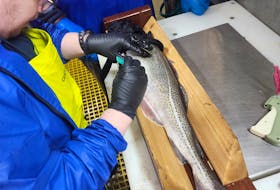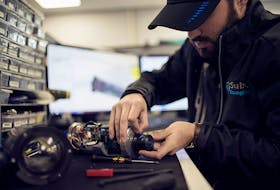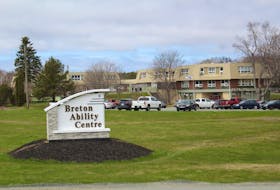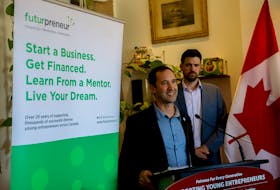An international multimillion-dollar research project exploring societal issues emerging from our interactions with the ocean will receive valuable input from faculty and students at Memorial University, working towards the goal of ensuring more sustainable oceans.
The Nippon Foundation Ocean Nexus Center at the University of Washington’s EarthLab is a new 10-year, $32.5-million US research partnership between the University of Washington and the Nippon Foundation of Japan. Researchers from 21 universities around the world will contribute to the multidisciplinary collaborative project, including MUN geography professor Gerald Singh.
“The reason it’s called Ocean Nexus is it’s really trying to understand the ocean not just as a biophysical entity, but basically how the ocean intersects the nexus between people and the ocean environments,” said Singh.
“Our research program is really about doing highly interdisciplinary research trying to understand... how humans affect the ocean, but also how we’re affected by it.”

A former Nippon Foundation fellow who worked on its Ocean Nereus Program, a predecessor of sorts to the Ocean Nexus Center, Singh will work on the project alongside PhD students and post-doctoral researchers at MUN to examine Canadian ocean governance. This work will take into consideration what the policies hope to achieve and will assess their ability to respond to climate change.
“I’m, at heart, an interdisciplinary researcher,” said Singh, whose research interests include the economy, sustainable communities and climate change. “Doing collaborative work like this across institutions, across different parts of the world, is to me the most interesting, as well as the most rewarding kind of work I can do. Especially since a lot of the work I do, I try to connect with federal and international government agencies. That would be difficult to do outside of a large network like this.”
Fishery, offshore components
The project has five primary themes — ocean and human health; ocean economy and livelihood; ocean people and society; equitable ocean governance; and ocean climate and extreme events.
Specific to Newfoundland and Labrador, Singh and his colleagues will look at how Canadian ocean policy relates to the management of fisheries, investigating whether it adequately addresses the impacts of climate change. He’s also hiring a post-doctoral researcher through the project specializing in environmental impact assessments for offshore oil and gas development.
"Doing collaborative work like this across institutions, across different parts of the world, is to me the most interesting, as well as the most rewarding kind of work I can do." — Gerald Singh
“One thing we hope to really do together in the Newfoundland context, and maybe beyond, is think about how environmental impact assessment ... how it operates to try to ensure sustainable development,” Singh said. “Is it maybe too focused on the development side of it, or is it more focused on the environmental protection side, and whose voices are really being heard in making those decisions?”
Singh acknowledges there are overriding narratives often put out there suggesting the ocean is simply a resource or needs to be conserved at all costs. The project takes the approach of honing in on sustainable and equitable development, looking to strike a balance between those narratives.
“We’re much less interested in just pursuing one of those sides versus the other,” he said. “One of the big reasons the Ocean Nexus program came about is because we do see in some circles more of a lack of critical perspectives across those topics.”
Through this project, MUN will become part an existing network of over 30 institutions located throughout the world.
“I would say through MUN, we’re leading a lot of the analysis on ocean governance and its relation to the global sustainable development goals,” Singh said, who is also a part of the Ocean Frontier Institute, a research network connecting universities in Atlantic Canada.
Twitter: @CBNAndrew









